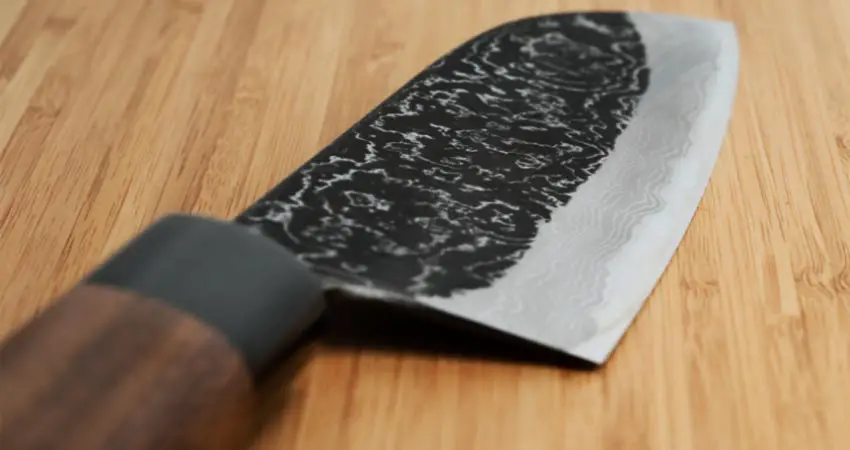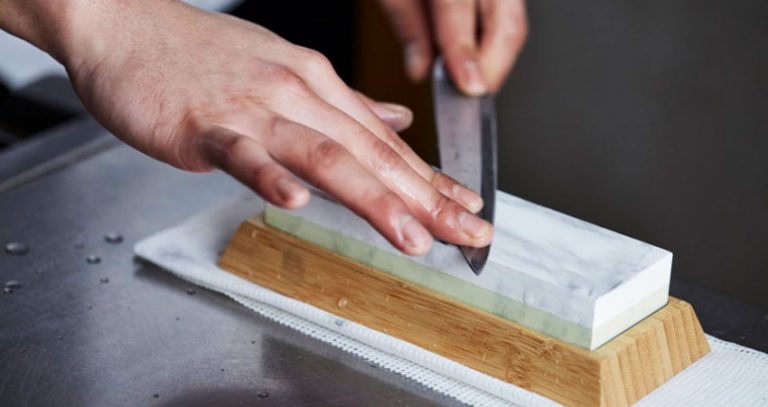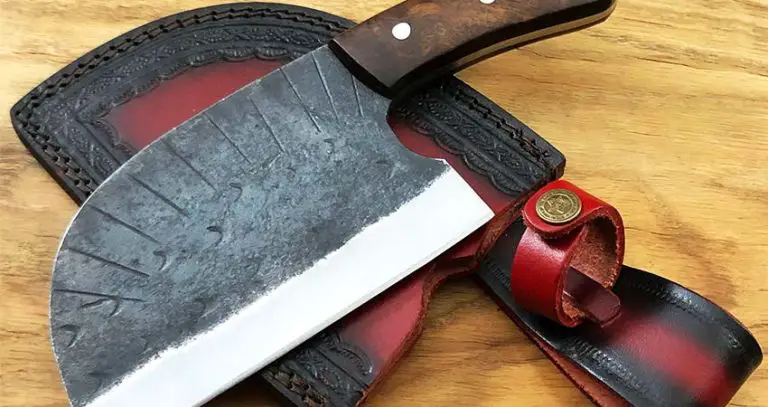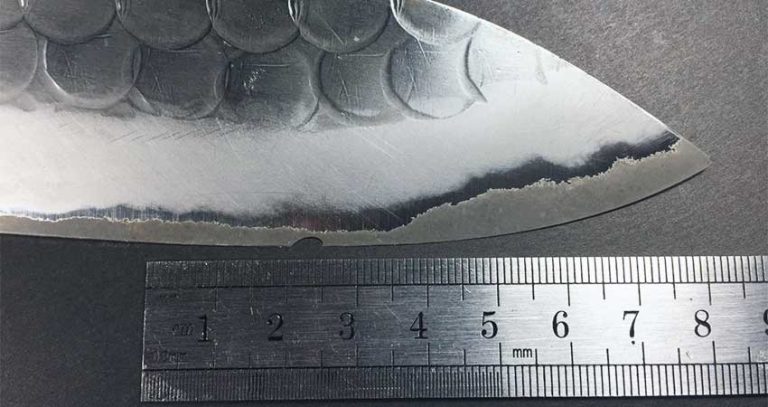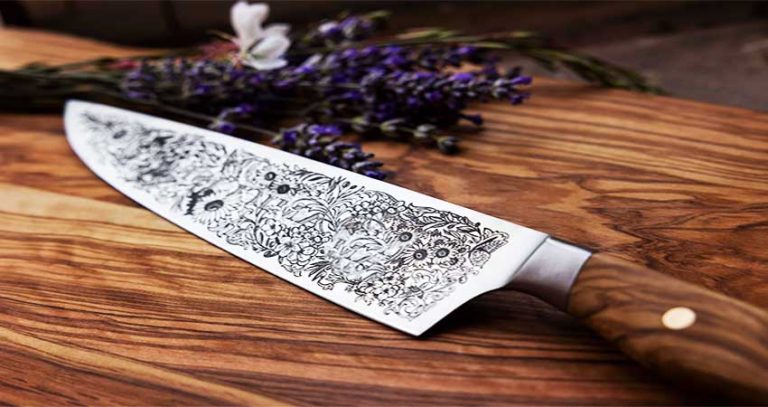How Often Should You Oil Carbon Steel Knives?
Carbon steel knives give several additional things in comparison to stainless steel knives. Other than the hardness and sharpness, rust is one of the biggest additions.
Which is unfortunately a negative. Due to the high carbon build of this steel, they are very prone to rust.
It has become a common practice to apply oil to carbon steel knives. But how often should you oil carbon steel knives? And what are the right methods of knife care?
We will compile everything regarding the topic in this discussion.
Be with us throughout this short yet informative guide to ensure the best care for your knives.
Why Should You Oil Carbon Steel Knives?
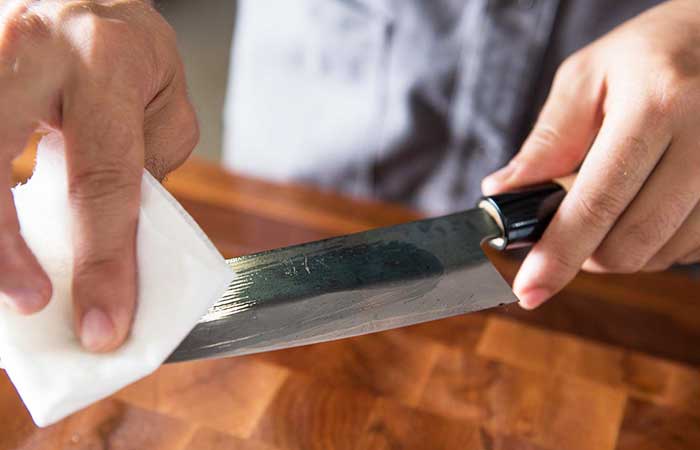
Carbon steel knives have a greater amount of carbon than regular stainless steel knives. If you don’t wash and dry these knives properly after every use, rust can build up very easily.
This is the main reason you should apply oil to carbon steel knife blades before putting them in storage. The oil prevents rust buildup and keeps the knife blade sharper for a long time.
But applying too much oil can be risky as well. Some oils are very sticky and can create a coating on the knife blade.
It will then incorporate bad flavors in the food you cut with the knives.
Things To Consider Before Choosing The Right Knife Oil
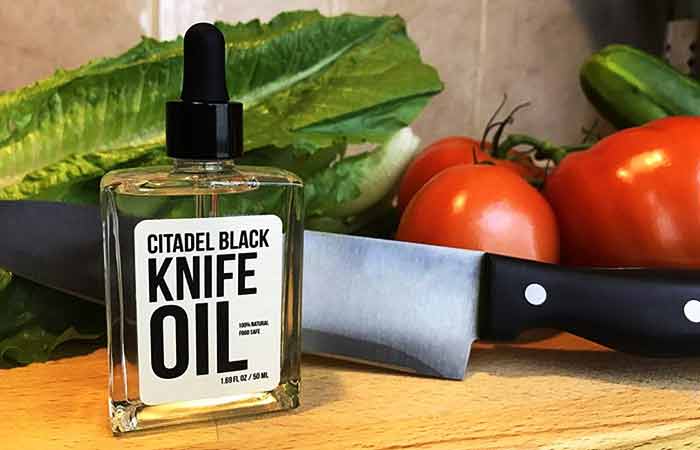
Applying just any oil might not be suitable for your precious knife. Food-grade mineral oils are the best ones when it comes to knife protection.
We’ll go over a few things you need to consider before choosing oil for carbon steel knife blades.
Synthetic Or Natural Oil
Natural oils are mostly plant-based oils such as olive oil, sunflower oil, camellia oil, etc. Though these oils can prevent rust to some extent, the problem is somewhere else.
These oils have a sticky characteristic. As a result, they can create a greasy layer on the knife blade, which will attract dust and other particles. This can be very risky for premium knife blades.
Synthetic oils, on the other hand, synthetic oils are much lighter than natural oils. They come in different grades.
Food-grade synthetic oils are suitable to use on carbon steel knives as they are safe to consume.
Non food-grade synthetic oils shouldn’t be used on knife blades as they can mix with edible ingredients. There might be unpleasant odors in non food-grade oils.
Purpose Of Oil
Some oils are used to hone knife blades, while others might be more suitable for conditioning the knife blade.
But as we are talking about carbon steel knives, you need an oil that will prevent the blade from rusting.
Special oils are made to prevent rust from building up on carbon steel blades. A protective coating is created on the knife blade when you apply these oils.
This protective coating repels water and other compounds that can cause rust.
Versatility
Buying a knife oil for different purposes like honing, sharpening, conditioning, etc., might not be possible all the time. It will be a plus if you have an all-purpose oil that can be used in all cases, including rust prevention.
Choose an all-purpose mineral oil that isn’t too sticky and can be used in all conditions.
How Often Should You Oil Carbon Steel Knives?
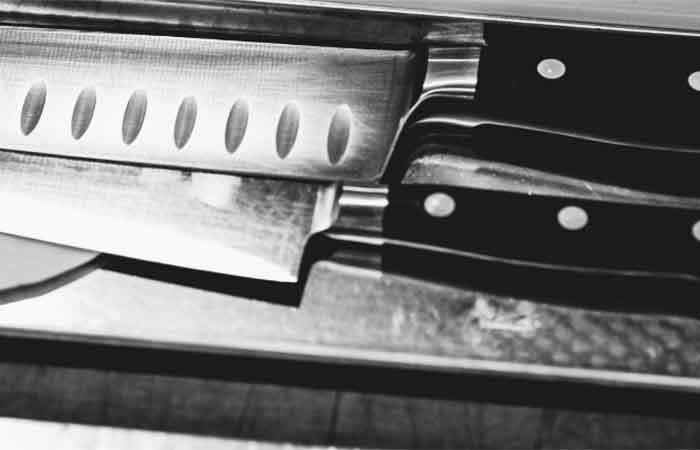
There are endless debates on this topic. Some say you should oil carbon steel knives after every use while others say oiling after a certain period is enough.
We are going to find out the right answer.
As you might already know, wet condition is the main enemy of carbon steel knives. Rust builds up too fast when you leave a carbon steel knife in wet condition. This can happen if you don’t clean and dry the knife after every use.
Sometimes, even after washing and drying the knife completely, we put them in knife sheaths or blocks where moisture can damage the knife.
Protecting the knife blade from such conditions is the key to rust prevention.
This is why you need to oil carbon steel knives every time you put the knife into storage after use. As the protective coating of oil gets damaged when you cut something and wash the knife, applying a new layer is essential.
But it can be overwhelming to oil the knife blade repeatedly, especially if you are using the knife too often.
A good solution can be using a magnetic knife strip where you can rest the knife while not in use or in between uses.
Once you complete your work for the day, you can give the knife a final wash and dry it completely. Then apply oil to the knife blade and wipe off excess oil before putting the knife into the block.
FAQs
Let’s get to know answers to some frequently asked questions about oiling carbon steel knives.
What kind of oil do you use on a carbon steel knife?
As natural oils can go rancid, it is recommended you use food-grade mineral oils on carbon steel knives. Just be careful to lightly rub the oil on the knife blade.
Is WD40 good for knives?
WD40 is a great lubricant, but it isn’t ideally made for knives, especially carbon steel knives. You need the oil to make a protective layer on the blade to prevent it from rusting.
What oil should I use on knife handles?
Conditioning oils are great for maintaining cutting boards, knife handles, and even blades. So, you can use them on the knife handle to maintain the shine of the handle.
Conclusion
Rust is the biggest threat to carbon steel knives. To keep your knives from rusting, you need to take proper of them.
Applying oil on knife blades is one of the most crucial steps in knife care. It is also crucial to know how often should you oil carbon steel knives.
Every time you wash and dry the knife, it should be oiled lightly so that moisture doesn’t come in contact with the blade surface.
This will ensure the knife blade remains effective.

